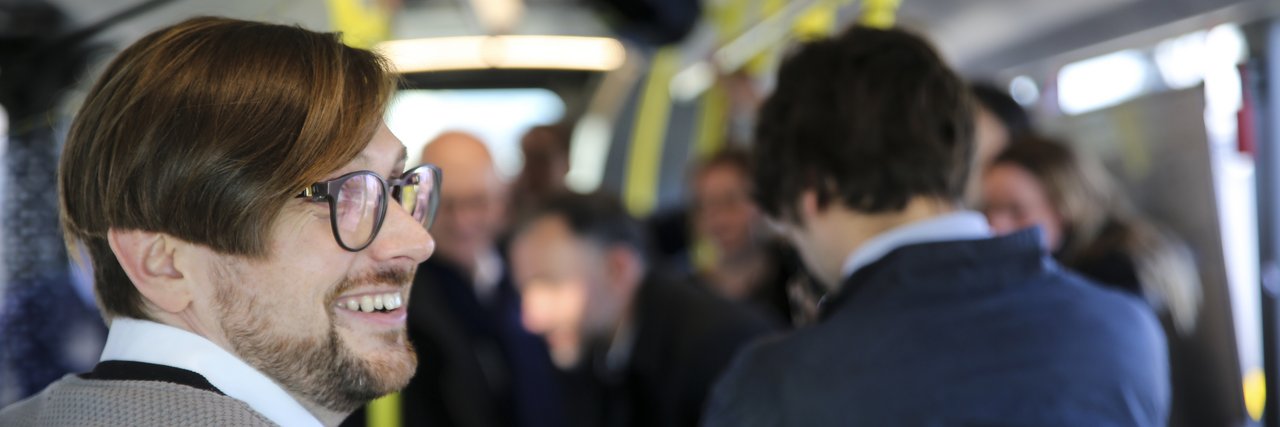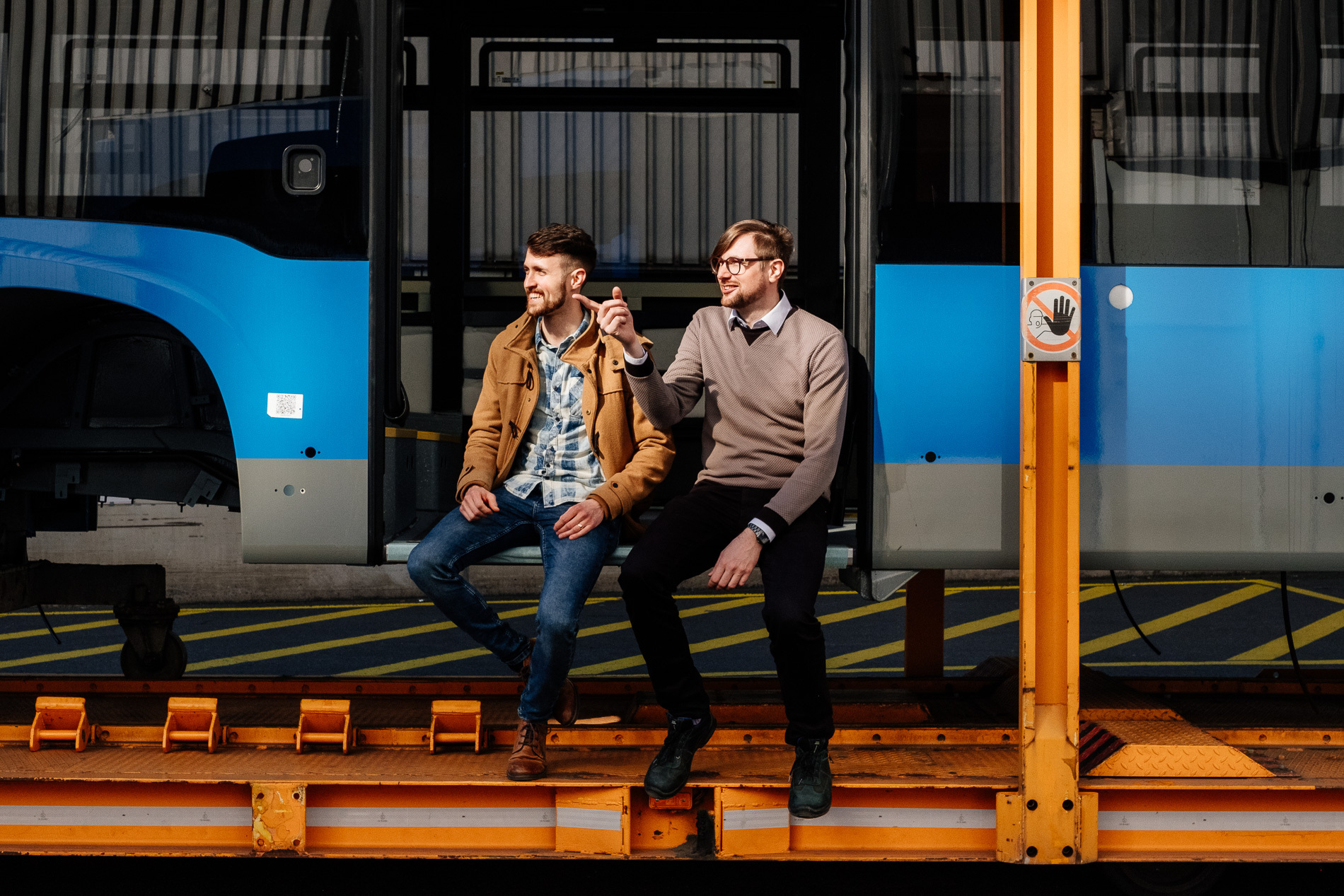Since fall 2018, the eCitaro has been the first emission-free member of the Mercedes-Benz city bus portfolio and in contrast to the low-emission combustion-engine models, it drives fully electrically. Production start-up and coordination of the production of the all-electric city bus require careful planning. Philipp Heyne, Project Manager of Production of the eCitaro, plays a major role here.

From talent program to project manager
In 2011, he joined the company via the "CAReer" trainee program following his engineering degree. Since then he has taken on responsibility in various projects. We asked him about his concrete tasks and the challenges in his career. In the interview that follows you can also find out what the eCitaro has to do with smartphones and why Philipp would not have been so successful without the right communication.
The eCitaro is produced on the same line as the "conventional" city bus Citaro. What challenges arose during integration into the new production line?
"The challenges came up again and again wherever the eCitaro differed from the Citaro with a combustion engine. The roof features are just one of many examples: for on the Citaro, there were only the pipes for the air-conditioning packs, whilst on the eCitaro there are now electrical component parts and the batteries fitted. This means that the employees also have to read electrical drawings, for example. So the employees, too, had to adapt and come to terms with completely new duties and circumstances."
What do you like best about the eCitaro?
"The handling – definitely. It is very pleasant that there are no shift operations. This gives the eCitaro much more gentle handling characteristics and you don't feel any shift jerking. What’s even more exciting is the cross-departmental cooperation and the commitment from colleagues. In the project, Sales, Development, Production and Aftersales – all those involved – have to play their part. Specifically for production, the direct coordination between Supply -Chain Management, Assembly and Planning in our project office was a key to success in our project office. Basically, we set ourselves up like a swarm where necessary and solved all the issues."
What do you look forward to in particular when you think of the future of the eCitaro?
"I'm looking forward to further development and I'm also very excited to find out what the future will bring. I can see parallels with smartphones, which were at a similar stage at the start of their development ten years ago. For example, in the coming years I'm expecting to see huge advancements in the batteries: they are becoming smaller, more durable and more powerful. Ultimately you'll be able to buy a new battery every one to two years and feel the difference, because the technology is currently developing so quickly. And it is just thrilling to be part of it and actively shape this development. The project is also set up in such a way that we take various possibilities into consideration and we are very flexible where the project strategy is concerned, meaning that we can turn off left or right if we need to."

On the left Philipp Heyne, Project Manager Production eCitaro, on the right Felix Würthwein, Project Manager High-Volt. Photo credit: Jean Raclet
What is the greatest challenge in your job?
"Not to forget anything (laughs). In particular when it comes to coordinating the start-up I had to have my ear to the ground everywhere and seek out the problems. Because only when the problems are identified beforehand can they be solved in good time. Apart from that, the tight timeframe also played a part."

On the right Philipp Heyne, Project Manager Production eCitaro, on the left Felix Würthwein, Project Manager High-Volt. Photo credit: Jean Raclet
What is your normal work day like?
„Of course, there is no such thing as a normal day. In our little project office we have assembled the key information carriers. We also get more people involved depending on the topic and task. And there is always plenty of variety involved. Naturally, I also have various meetings with subprojects and I report to Plant Management and Management. It is hugely important to compare notes in a task like this.“
What is your normal work day like?
"Of course, there is no such thing as a normal day. In our little project office we have assembled the key information carriers. We also get more people involved depending on the topic and task. And there is always plenty of variety involved. Naturally, I also have various meetings with subprojects and I report to Plant Management and Management. It is hugely important to compare notes in a task like this."
What is the most important skill in your job?
"First and foremost it's the ability to communicate: you have to be able to deal with different people: with colleagues in Production, Management and Plant Management. This means that depending on the contacts, the focus is on data, facts and figures – or background information and processes. You also have to keep an eye on everything in my job.
In every respect I have to say: it has been made relatively easy for me to carry out my task. The eCitaro has been a kind of flagship for Daimler Buses and the Mannheim site and everyone pulled together. That was impressive! Here, too, many thanks once again to all the colleagues who played their part in the successful series introduction. And now we're all proud of what we've achieved. The eCitaro stands for the future sustainability of our location."
Thank you to Philipp Heyne for the pleasant interview!
The interview was conducted by Johannes Jerg, Intern, Global Corporate Communications Daimler Buses.